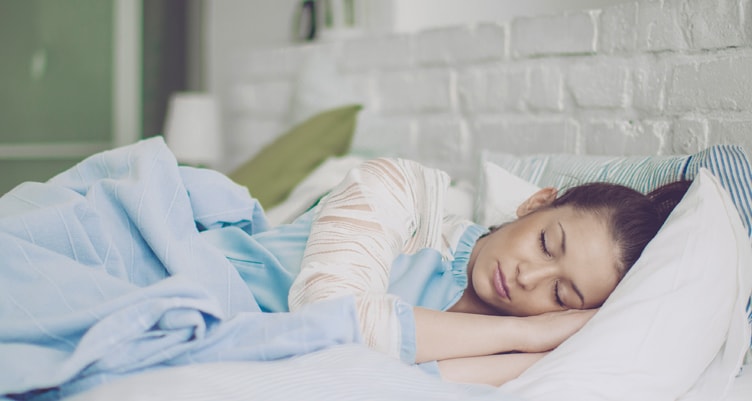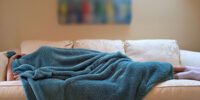Why Sleep Quality Declines With Age and How to Counter It

Age-related decline in sleep quality is a prevalent issue among older adults. This article aims to explore the scientific basis behind this phenomenon, examining the impact of aging on sleep patterns and the common sleep issues experienced by older individuals.
Additionally, lifestyle factors that influence sleep quality in older age and strategies to enhance sleep are discussed. Natural remedies and sleep aids as well as the importance of seeking professional help for sleep disorders in the elderly are also addressed.
Key Takeaways
- Aging can disrupt circadian rhythms and hormonal changes, leading to poorer sleep quality in older adults.
- Cognitive decline and medication use can affect sleep architecture and contribute to sleep disturbances in older adults.
- Common sleep issues associated with aging include changes in sleep architecture, insomnia, sleep apnea, and restless leg syndrome.
- Lifestyle factors such as regular exercise and reducing screen time before bedtime can help improve sleep quality in older adults.
The Science Behind Age-Related Sleep Decline
The current understanding of age-related sleep decline is rooted in the scientific research that has explored the physiological changes in the sleep-wake cycle and the neural mechanisms underlying this phenomenon.
One key factor contributing to age-related sleep decline is the impact of aging on circadian rhythms. Circadian rhythms are the internal biological clocks that regulate various physiological processes, including sleep-wake cycles. As individuals age, their circadian rhythms tend to shift, resulting in earlier bedtimes and wake times. This alteration in circadian rhythms can disrupt the sleep-wake cycle and lead to poorer sleep quality.
Additionally, the role of hormones also plays a significant role in age-related sleep decline. Hormones such as melatonin, which regulates sleep, and cortisol, which regulates stress, can undergo changes with age, further contributing to sleep disturbances in older adults.
Understanding these physiological changes and neural mechanisms is crucial for developing effective interventions to improve sleep quality in the elderly.
Understanding the Impact of Aging on Sleep Patterns
Aging has been found to significantly alter the patterns of sleep. Cognitive decline and its impact on sleep patterns in older adults is an important area of research in understanding age-related sleep disturbances. Older adults often experience changes in their sleep architecture, such as decreased slow wave sleep and increased wakefulness during the night. These changes can lead to difficulties in consolidating sleep and maintaining sleep continuity. Additionally, the role of medications in age-related sleep disturbances cannot be ignored. Many older adults take medications for various chronic conditions, and these medications can have a direct impact on sleep quality. Certain medications can disrupt sleep architecture, increase wakefulness, or cause daytime sleepiness. Therefore, it is crucial to consider both cognitive decline and medication use when addressing sleep disturbances in older adults.
| Cognitive Decline and Sleep Patterns | Medications and Sleep Disturbances | Aging and Sleep Patterns |
|---|---|---|
| Decreased slow wave sleep | Disruption of sleep architecture | Altered sleep architecture |
| Increased wakefulness during the night | Increased wakefulness | Difficulties in sleep consolidation |
| Decreased sleep continuity | Daytime sleepiness | Changes in sleep quality |
Common Sleep Issues Associated With Aging
Common sleep issues associated with aging include changes in sleep architecture, disruptions in sleep continuity, and increased wakefulness at night. These changes can lead to the development of common sleep disorders such as insomnia, sleep apnea, and restless leg syndrome.
Insomnia is characterized by difficulty falling asleep or staying asleep, resulting in poor sleep quality and duration. Sleep apnea is characterized by repeated interruptions in breathing during sleep, leading to fragmented sleep and excessive daytime sleepiness. Restless leg syndrome is characterized by an irresistible urge to move the legs, often accompanied by uncomfortable sensations.
These sleep issues can have a significant impact on cognitive function, as sleep deprivation has been associated with impairments in attention, memory, and decision-making. It is important to address and manage these sleep issues in order to mitigate the cognitive effects of sleep deprivation in older adults.
Lifestyle Factors That Affect Sleep Quality as You Get Older
This discussion will focus on two key lifestyle factors that can significantly impact sleep quality: exercise and screen time.
Numerous studies have shown that engaging in regular exercise can improve sleep quality, with benefits including shorter sleep onset latency, increased total sleep time, and reduced sleep disturbances.
On the other hand, excessive screen time, particularly before bedtime, has been associated with insomnia symptoms, such as difficulty falling asleep and disrupted sleep patterns.
Exercise and Sleep Quality
Regular physical activity has been shown to positively affect sleep quality in individuals of all ages. Several studies have demonstrated the benefits of exercise on sleep, indicating a strong correlation between physical activity and improved sleep outcomes. Engaging in exercise has been associated with decreased sleep latency, increased total sleep time, and enhanced sleep efficiency.
Moreover, exercise has been shown to reduce symptoms of insomnia and sleep apnea, two common sleep disorders. Mechanisms underlying the exercise-sleep relationship include the release of endorphins, regulation of circadian rhythms, reduction of anxiety and depression, and body temperature regulation.
It is important to note that the type, intensity, and timing of exercise can influence its effects on sleep. Overall, incorporating regular physical activity into one’s routine can be an effective strategy for promoting better sleep quality.
Screen Time and Insomnia
Excessive screen time has been linked to an increased risk of insomnia. Studies have found a significant association between prolonged use of electronic devices and disrupted sleep patterns. Electronic devices emit blue light, which can suppress the production of melatonin, a hormone that helps regulate sleep-wake cycles.
The exposure to blue light from screens, especially in the evening, can delay the onset of sleep and reduce sleep quality. To counter the negative impact of screen time on sleep, individuals can consider implementing a digital detox. This involves setting boundaries and time limits for screen use, especially before bedtime.
Additionally, using blue light filters or wearing blue light-blocking glasses can help mitigate the effects of blue light on sleep. A digital detox can promote healthier sleep habits and improve overall sleep quality.
Strategies to Improve Sleep Quality in Older Adults
This discussion will focus on strategies to improve sleep quality in older adults, specifically through bedroom environment modifications and establishing a consistent routine.
Making appropriate modifications to the bedroom environment, such as reducing noise and light levels, optimizing temperature and humidity, and selecting a comfortable mattress and pillow, can contribute to better sleep.
Additionally, establishing a consistent sleep routine, including regular bedtimes and wake-up times, can help regulate the body’s internal clock and promote more restful sleep in older adults.
Bedroom Environment Modifications
One potential strategy to improve sleep quality in older adults involves making modifications to the bedroom environment. This can be achieved by adjusting bedroom lighting and improving mattress quality.
- Bedroom lighting: Bright lights in the bedroom can disrupt the sleep-wake cycle, making it difficult for older adults to fall asleep or stay asleep. To address this issue, consider the following modifications:
- Install dimmer switches to adjust lighting levels according to personal preference.
- Use blackout curtains or blinds to block out external light sources.
- Avoid using electronic devices with bright screens before bedtime.
- Mattress quality: An uncomfortable mattress can lead to poor sleep quality. Consider the following modifications:
- Invest in a mattress that provides adequate support and comfort.
- Opt for a mattress with pressure-relieving features, such as memory foam or latex.
- Replace the mattress if it is more than 7-10 years old, as it may have lost its supportive qualities.
Establishing a Consistent Routine
Establishing a consistent routine can be an effective approach in promoting better sleep patterns among older adults. By developing a structured schedule, individuals can regulate their internal body clock, known as the circadian rhythm, which plays a crucial role in sleep-wake cycles.
Consistency in the timing of going to bed and waking up can help synchronize the circadian rhythm, allowing older adults to fall asleep more easily and wake up feeling refreshed.
Additionally, developing bedtime rituals can signal the body that it is time to sleep, further enhancing sleep quality. These rituals can include activities such as reading a book, practicing relaxation techniques, or taking a warm bath. The repetition of these rituals can create a predictable environment that promotes relaxation and signals the body to prepare for sleep.
Overall, establishing a consistent schedule and incorporating bedtime rituals can significantly improve sleep patterns among older adults.
Natural Remedies and Sleep Aids for Age-Related Insomnia
To counter age-related insomnia, natural remedies and sleep aids can be utilized. These options can help improve sleep quality and promote a restful night’s sleep. Here are some natural remedies and sleep aids that can be beneficial:
- Sleep supplements:
- Melatonin: A hormone that regulates the sleep-wake cycle and can help with falling asleep faster.
- Valerian root: An herb that has been used for centuries to promote relaxation and improve sleep quality.
- Chamomile: A herbal tea known for its calming properties and ability to reduce anxiety and promote sleep.
- Herbal remedies:
- Lavender: The scent of lavender has been shown to have a calming effect, making it useful for improving sleep quality.
- Passionflower: This herb has sedative properties and can help induce sleep.
- Lemon balm: Known for its calming effects, lemon balm can help reduce anxiety and promote better sleep.
These natural remedies and sleep aids can be effective in counteracting age-related insomnia and improving sleep quality.
Seeking Professional Help: Sleep Disorders and Aging
Seeking professional assistance becomes crucial when individuals experience sleep disturbances due to underlying sleep disorders that are commonly associated with the aging process. Professional therapy provides a comprehensive approach to address these sleep disorders and improve sleep quality.
One common therapy option is cognitive behavioral therapy for insomnia (CBT-I), which focuses on changing negative thoughts and behaviors that contribute to sleep problems. CBT-I has been found to be effective in reducing insomnia symptoms and improving sleep in older adults.
Another option is medication therapy, which includes the use of sleep aids such as sedatives, hypnotics, and melatonin. These medications can help regulate sleep patterns and promote better sleep. However, it is important to note that medication options should be used under the guidance and supervision of a healthcare professional, as they may have potential side effects and interactions with other medications.
Overall, seeking professional help through therapy and medication options can significantly improve sleep quality in individuals with sleep disorders related to aging.
Frequently Asked Questions
What Are the Physiological Changes That Occur in the Brain and Body as We Age That Affect Sleep Quality?
Physiological changes in sleep patterns occur with age, impacting sleep quality. These changes may include alterations in sleep architecture, reduced production of melatonin, and decreased sleep efficiency. Lifestyle factors also play a role in sleep quality.
How Does Age-Related Sleep Decline Differ Between Men and Women?
Gender differences in age-related sleep decline can be attributed to hormonal changes. Research has shown that menopause in women is associated with increased sleep disturbances and decreased sleep quality, while men tend to experience a gradual decline in sleep architecture with age.
Are There Any Specific Sleep Disorders That Are More Common in Older Adults?
Specific sleep disorders in older adults can be attributed to various causes of sleep disturbances in elderly individuals. These disorders may include insomnia, sleep apnea, restless leg syndrome, and periodic limb movement disorder.
Can Certain Medications Prescribed for Age-Related Health Conditions Affect Sleep Quality?
Certain medications prescribed for age-related health conditions can affect sleep quality due to their side effects. However, alternative therapies may help counter these effects and improve sleep quality in older adults.
How Can Older Adults Create a Sleep-Friendly Environment in Their Bedroom to Promote Better Sleep?
Creating a sleep-friendly environment in the bedroom is essential for improving sleep hygiene. Factors such as temperature, noise, light, and comfort of the sleeping surface should be considered and optimized to promote better sleep in older adults.









